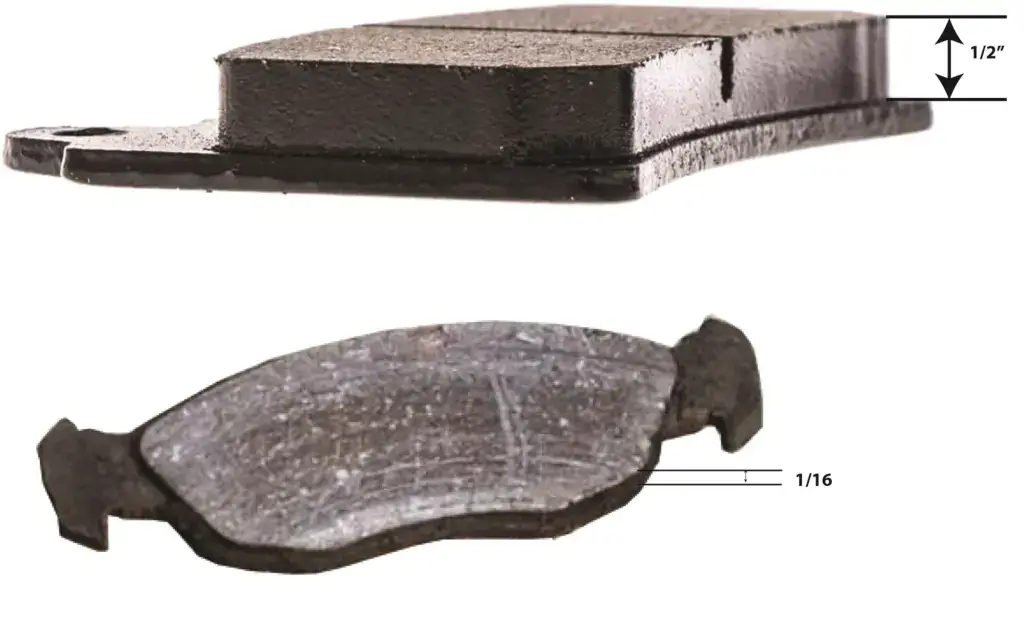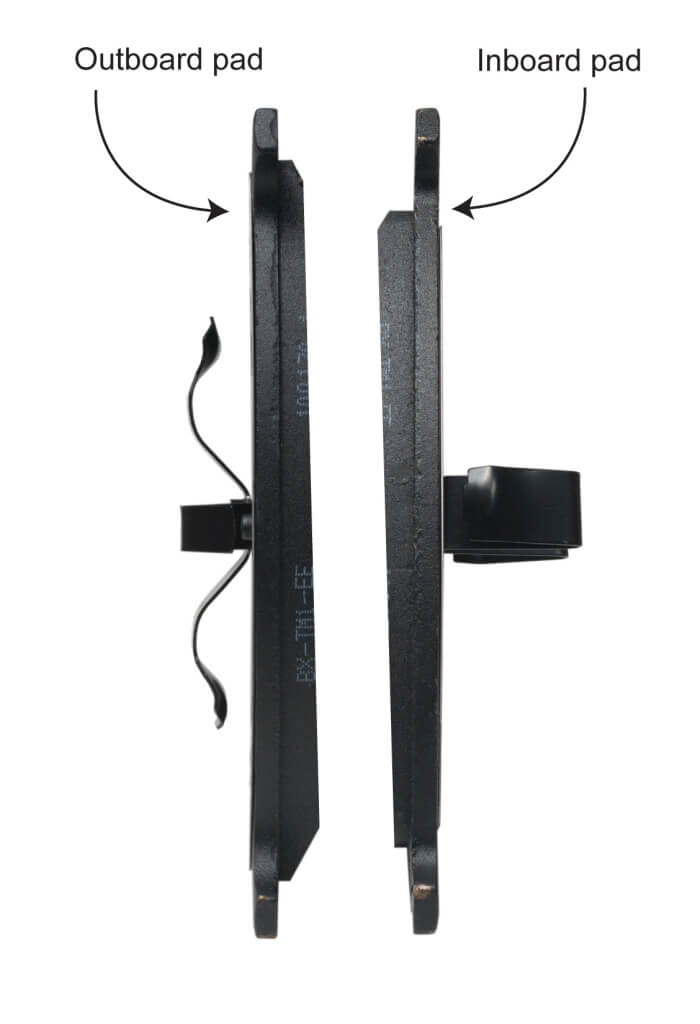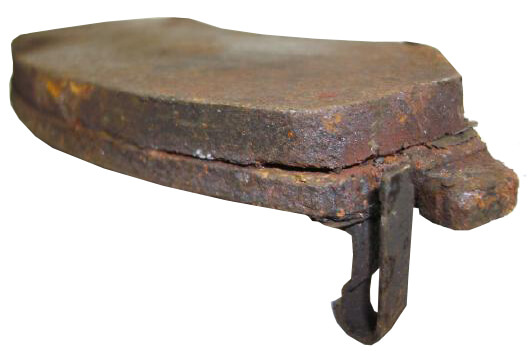When to Replace Brake Pads
Don’t wait until your brakes make noise; inspect pad thickness and rotor condition
Brake pads are wear items; the more you use them, the faster they wear. That may seem obvious, but many people don’t understand that brake pad life is related to how you drive. For example, if you do mostly highway driving, your brake pads can last as long as 70,000 miles. If you drive in stop-and-go traffic or through mountainous or hilly areas, you can wear out your brakes in 20,000 miles. So, mileage is less relevant than how you drive.
When to replace brake pads depends on brake pad thickness, how they’re wearing, and rotor condition
Brake pad thickness
New brake pads are about 1/2″ thick. Generally, brake pad manufacturers recommend replacement when the friction material wears down to about 1/8″ (2-3mm). At that point, they’re not completely worn out. But the wear accelerates from that point on, so you can’t extrapolate how long your 1/8″ thick pads will last based on how many miles you’ve put on since they were new.
Most brake pads come with wear indicators (often called squealers) that rub against the rotor, producing a high-pitched squeal to warn you that you’re due for brakes. Those squealers touch the rotor at around 1/16″. Once you hear that high-pitched squeal, you should be making an appointment to have your brakes replaced.
Brake noise
Brake pad thickness is meaningless if your brakes are making noise. Brake noise is usually caused by poor rotor condition or improper caliper operation. Any time you hear odd brake noise you should have your brakes checked.
Uneven brake pad wear is another reason to replace brake pads
Uneven brake pad wear occurs when the caliper isn’t
operating properly. Corroded caliper slide pins can cause one pad to wear faster than the other. Or, rust in the brake caliper bracket can cause the brake pad to tilt, causing a tapered wear angle.
Brake feel is another indication of when you should replace brake pads
If the brake pedal feels soft or spongy when you press it, there might be air in the brake lines or the pads might be worn out.
Infrequent use is just as bad as too much use
Brake components get wet and that causes them to rust. Driving heats up the brake components and drives off that moisture, helping your brakes avoid rust damage.
If you let your car sit unused for long periods, the steel brake pad backing plate will start to rust and that rust will eventually break the bond between the friction material and the backing plate. That rust “jacking” will destroy your brake pads
Infrequent use can also cause rust to form on the brake rotor, causing noise and accelerated brake pad wear.
Longer Stopping Distances
If you notice that your vehicle is taking longer to come to a complete stop, it could be a sign that the brake pads are wearing out.
Pulling to One Side
If your car pulls to one side when you brake, it can be an indication that brake pads are wearing unevenly or that there might be foreign matter in the brake fluid.
©, 2023 Rick Muscoplat
Posted on by Rick Muscoplat


